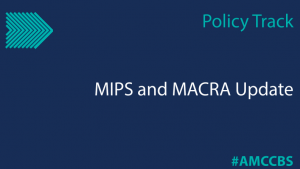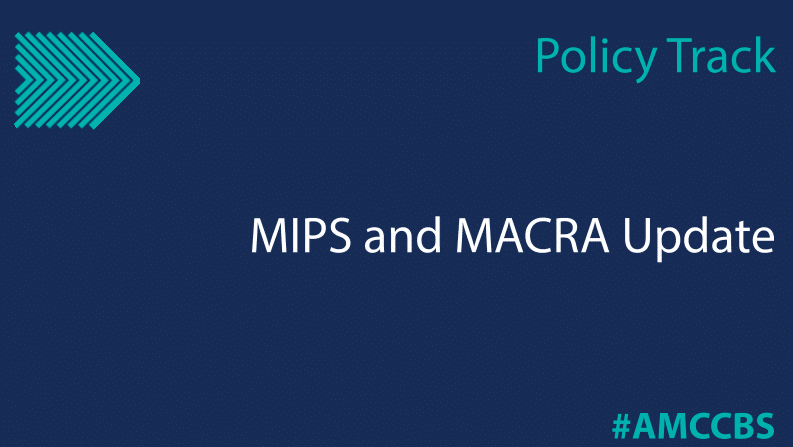 During its recent conference, ACCC provided an update regarding MIPS and MACRA. The well attended session featured a cross section of panelists including Sibel Blau, MD, Northwest Medical Specialties, Jennie R. Crews, MD, MMM, FACP, Seattle Cancer Care Alliance, Andrew Furlow, Hogan Lovells US LLP, and Stephen S. Grubbs, MD, FASCO, American Society of Clinical Oncology.
During its recent conference, ACCC provided an update regarding MIPS and MACRA. The well attended session featured a cross section of panelists including Sibel Blau, MD, Northwest Medical Specialties, Jennie R. Crews, MD, MMM, FACP, Seattle Cancer Care Alliance, Andrew Furlow, Hogan Lovells US LLP, and Stephen S. Grubbs, MD, FASCO, American Society of Clinical Oncology.
The discussion started with an overview of MACRA, but quickly focused in on a couple key themes: getting started right away and focusing on transformation. The shift to value-based care is very complex and the panelists spoke a bit about how oncology may not be really engaged yet if they’re included in a multi-specialty group where the focus of the organization’s MIPS reporting is on primary care measures. The panelists agreed that oncology will not be able to avoid the impact forever so they need to get started now.
The moderator asked about what changes might be needed to succeed in MIPS. Dr. Blau emphasized the need to learn from others. Her organization is a member of QCCA and they help each other improve deficiencies and leverage strengths. It was a lot of work to prepare an infrastructure that could support in value-based care and her practice, NWMS, has made significant investments including the addition of staff who are responsible for ensuring the data is accurate and is collected in the necessary format. In addition they rely on a third party, LabCorp, for reporting. To do it right, programs like MIPS require a new set of people and skills. For hospital based practices, some are getting sophisticated in choosing metrics and that will make a difference. Choosing wisely can make a big difference and help organizations maximize their investment.
Dr. Grubbs of ASCO suggested practices start small. Choose the six things you’re going to focus on and make sure you have the people in place to comply. Then you can start to think about coming years where the stakes get higher. Since the option for advanced APMs are very limited currently, MIPS participation is probably unavoidable. Look for opportunities to get points in all categories with one project. For more from ASCO, check out its Top 10 list for Quality Payment Program Participation in 2018.
At the close of the session, the panelists offered some advice if you haven’t started your value-based care transformation:
- Seek out information, learn from others who may be ahead of you. There are lots of simple things to do to get started. ASCO, CMS and ACCC all offer resource to help practices get started.
- Cultural transformation is required, so engaging providers, nursing team and anyone else who touches the patient has to be involved – find out what you can do to help.
- Task someone in your organization to get familiar with MIPS, create a strategy now. You’re not too far behind today, but in two years it will be a very different story.
- In the near term, make sure you’re meeting the 2018 threshold to avoid penalty – then you can look ahead to documentation requirements, a strategy for gaining bonus points and review improvement activities to identify where you can succeed.
- Finally, understand how you’re performing today – particularly the cost category – so that you can identify where improves are need.
The cultural change will be significant and will take the longest. It’s essential to prepare staff for value-based care – every member of your organization needs to know why you’re asking for this change and buy-in to the transformation.
Interested in learning more about technology solutions that will help you succeed in value-based care? Contact Navigating Cancer today.
